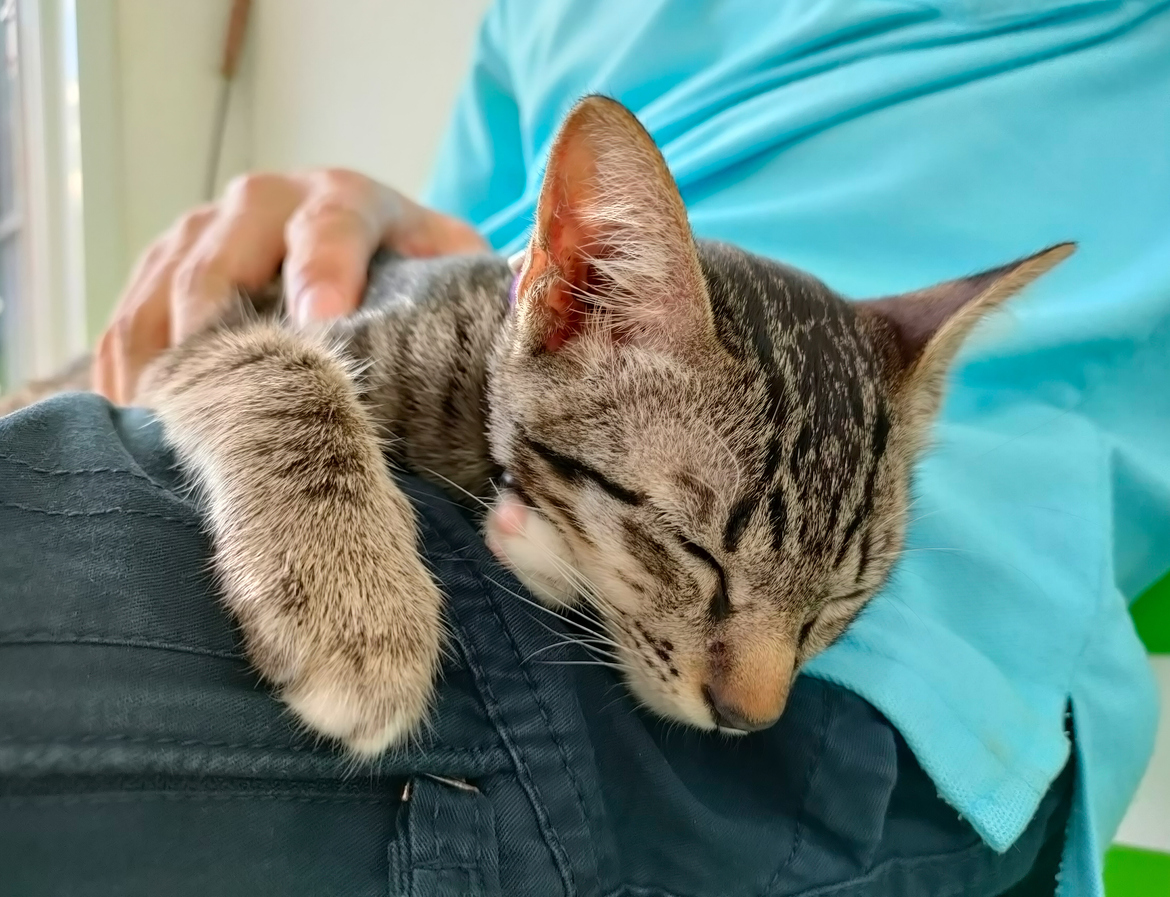Cats, our enigmatic companions, spend a significant portion of their lives in slumber. But do they dream as we do? Science suggests that our feline friends may indeed experience dream-like states, similar to those of humans. In this article, we delve into the fascinating world of cat sleep and dreams, exploring the science behind their slumber, how they experience dreams, and what this reveals about their cognitive abilities.
The Sleep Cycle of Cats: Understanding Feline Slumber
Cats are known to sleep for an average of 12-16 hours a day, though some may snooze even longer. Their sleep patterns are divided into two main phases: non-rapid eye movement (NREM) sleep and rapid eye movement (REM) sleep. These phases are similar to those found in humans, though the duration and frequency of each phase differ.
NREM Sleep
During NREM sleep, cats enter a deep, restful state where their bodies repair and regenerate tissues. This phase is crucial for their overall health, helping to strengthen their immune system and maintain proper bodily functions. Cats in this stage of sleep are generally still and appear to be in a deep state of rest.
REM Sleep
REM sleep is the phase most closely associated with dreaming. During REM sleep, a cat’s brain becomes more active, and its body may twitch or move slightly. This phase typically accounts for about 25% of a cat’s total sleep time. Studies have shown that REM sleep is essential for cognitive functions, such as memory consolidation and learning.
Do Cats Dream? The Science Behind Feline Dreams
Research suggests that cats do, in fact, experience dreams. This conclusion is drawn from studies on feline sleep patterns, particularly their REM sleep phase. During REM sleep, the brain activity of cats resembles that of awake cats, indicating that they may be replaying experiences from their waking hours in the form of dreams.
What Do Cats Dream About?
While we can’t know exactly what cats dream about, scientists believe that their dreams are likely related to their daily activities. For example, a cat might dream about hunting, playing, or interacting with its environment. Observations of cats in REM sleep often show small twitches, paw movements, or even whisker twitches, suggesting that they are reliving past experiences.
The Cognitive Significance of Dreams in Cats
Dreaming is believed to play a crucial role in processing memories and emotions. In humans, dreams help consolidate information and enhance learning. Similarly, in cats, dreaming may aid in memory retention and problem-solving abilities. This is particularly important for cats, as their instincts and survival skills are honed through repetitive behaviors and experiences.
Memory Consolidation
Cats rely heavily on their memory for activities such as hunting and navigation. Dreaming may help them strengthen these memories, allowing them to become more efficient hunters and better adapted to their environment. Research indicates that animals that experience REM sleep, including cats, are better at learning and retaining new information compared to those deprived of REM sleep.
How Sleep and Dreams Impact Feline Health
Adequate sleep, including both NREM and REM phases, is vital for a cat’s overall well-being. Disruptions in sleep can lead to behavioral issues, weakened immune responses, and even cognitive decline. Cats that experience quality sleep are more likely to be alert, playful, and healthy.
Signs of a Healthy Sleep Cycle in Cats
- Regular Sleeping Patterns: Cats should have consistent sleeping patterns, with periods of deep rest followed by shorter wakeful moments.
- Active REM Sleep: Cats that exhibit movements, such as twitching or pawing, during sleep are likely experiencing REM sleep, a sign of healthy cognitive function.
- Energy Levels: Cats that sleep well are more energetic and engaged when awake.
Conclusion: The Dreamy World of Cats
Cats, like humans, experience dreams as part of their sleep cycle, particularly during REM sleep. These dreams are thought to be reflections of their daily experiences, helping them process memories and sharpen their instincts. Ensuring that your cat has a healthy sleep routine is essential for their overall health and happiness.
Understanding the complexities of feline sleep and dreams not only deepens our appreciation for these fascinating creatures but also emphasizes the importance of sleep for their cognitive and physical well-being.
Yours in Paws,
The PawPaw Team

